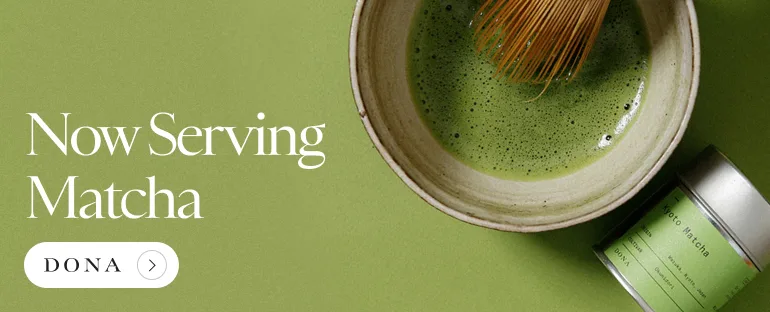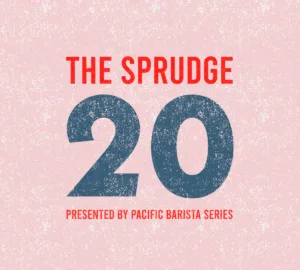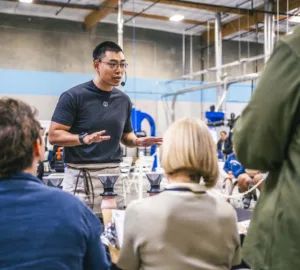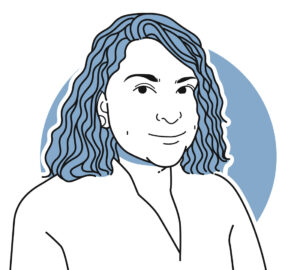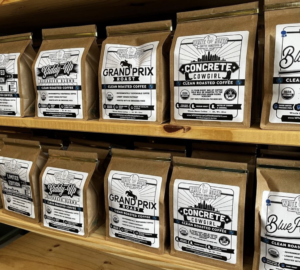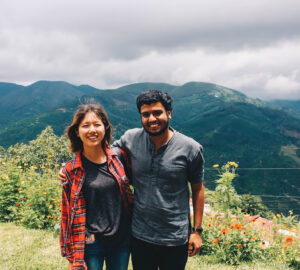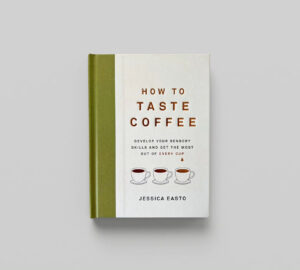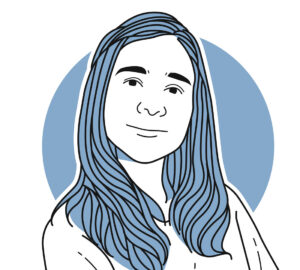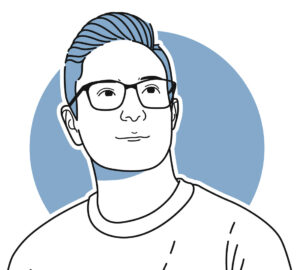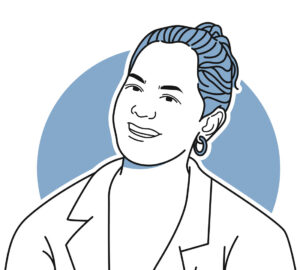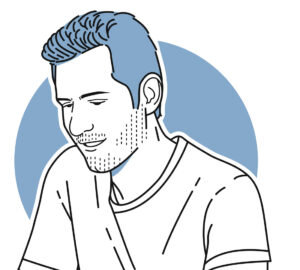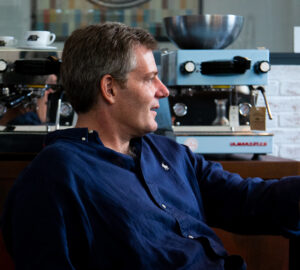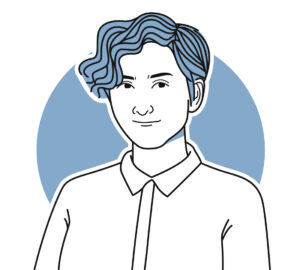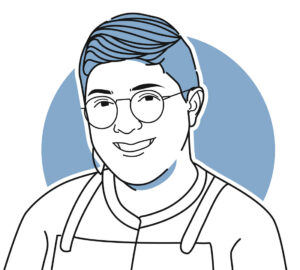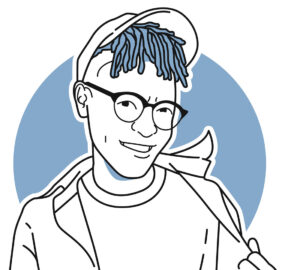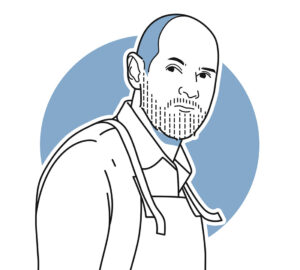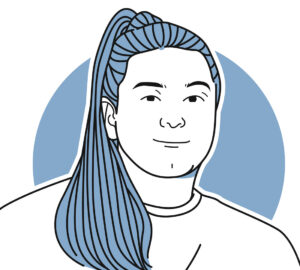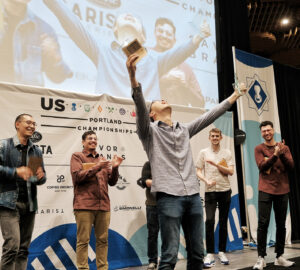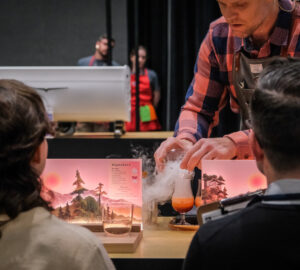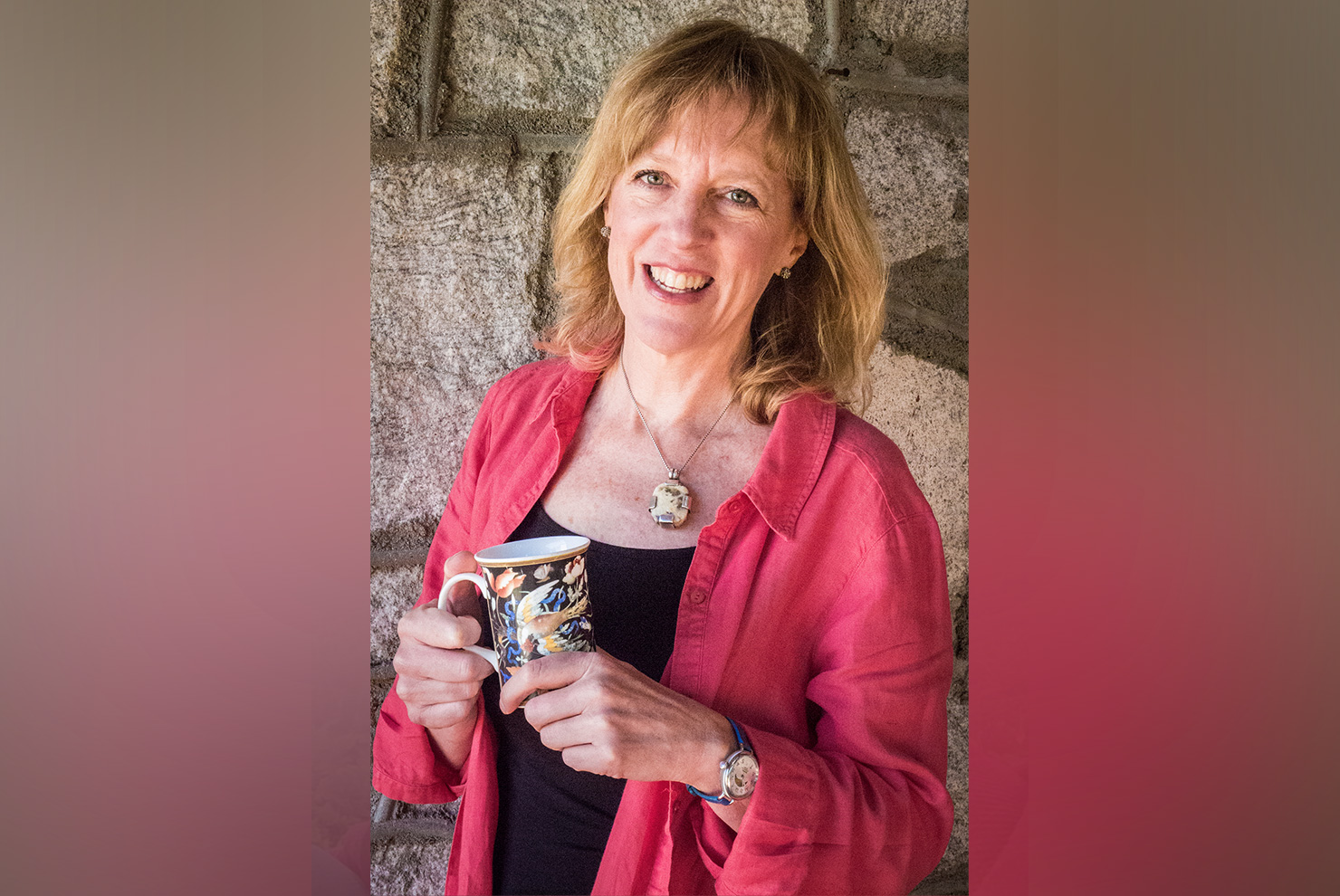
Welcome to The Sprudge Twenty Interviews presented by Pacific Barista Series. For a complete list of 2021 Sprudge Twenty honorees please visit sprudge.com/twenty.
Kimberly Easson is an enormously respected coffee industry insider, whose used her career in coffee to help advance, promote, and advocate for social change and the greater good. Her work as a co-founder with the International Women’s Coffee Alliance has influenced a generation of coffee professionals around the world, and her work with the Partnership for Gender Equity has been covered extensively here on Sprudge. Kimberly Easson embodies what the Sprudge Twenty should be and we’re thrilled to have her as a member of the 2021 class.
Kimberly Easson has spent her coffee career focused on finding ways to make the industry more equitable for all. She spent 13 years working at Fairtrade, co-founded the International Women’s Coffee Alliance in 2003, and later the JavaJog for a Cause, an industry run/walk that has raised more than $100K for women in coffee producing countries. Her most recent endeavor, the Partnership for Gender Equity, has been a leader in innovation and bringing people together to take action on critical issues. She served four years as board member of the Specialty Coffee Association and eight years as a member of the Association’s Sustainability Council. Kimberly envisions a future of coffee where the industry works for everyone involved in it.
Nominated by Nicole Kaufmann
This interivew has been lightly edited and condensed.
How have the challenges of this last year informed your work?
In March 2020, The Partnership for Gender Equity (PGE) was getting ready to launch our Buyer-Supplier Alliance to advance gender equity (at EXPO in Portland), and a big project in the Democratic Republic of Congo. Very quickly we realized that the message of gender equity would have to take a back seat to many other priorities the industry was facing in the initial weeks and months of COVID’s disruption, and also the need to listen to the voices of Black and brown people.
We chose to focus internally to ensure that the issue of gender equity would not be undermined in the time of COVID, and as a result we created new online programs to engage farmer organizations, trade partners and roasters in new ways.
We learned how fragile our world is, and the importance of community. The need for trust, empathy, and advocacy has never been more clear. And finally that technology can connect our world in unexpected ways.
What issue in coffee do you care about most?
The well-being of coffee farming families and communities as a foundation for the resilient of the sector. In particular, farming women—whose labor is most often hidden—are disadvantaged in almost every way in a supply chains dominated by men and with cultural barriers that hinder their advancement. Men are also impacted by gender inequalities—and children even more so.
What cause or element in coffee drives you?
The caring nature of the industry generally means that we have the chance to build industry wide collaboration to address key issues that matter to our communities and to people around the world. Gender equity is the foundation to healthy families, communities, and the long term success of the coffee sector. To solve it requires broad collaboration and action—and I think so much is possible when people see a possibility and how they can have an impact. We have that chance with gender equity.
What issue in coffee do you think is critically overlooked?
Women are the hidden workforce and the engine behind the coffee value chain. The main tool that we’ve had to address gender inequality in the industry has focused on sourcing women’s coffee—which is only a small part of the solution. The broader coffee sector has demonstrated an interest and a willingness in having tools that can help them engage with gender equity in a meaningful way—and a common language to guide conversations and action.
What is the quality you like best about coffee?
The ability of coffee to serve as a means for a message/and a way to connect people across continents, cultures, and generations. Coffee as a catalyst for positive change globally. Everyone can make a choice that makes a difference.
Did you experience a “god shot” or life-changing moment of coffee revelation early in your career?
In 2003, I led a tour of North American coffee women to Northern Nicaragua. Among the participants was Erna Knutsen, the person who coined the term “specialty coffee”—she was 83 at the time. For most of the women on that trip it was the first time they visited smallholder farmer women on their farms and in their homes. We met with a group of women farmers at SOPPEXCCA and spent an entire day sharing stories among us and learning about coffee. Since the visitors had been asking most of the questions during the last presentation session, we turned to the local women to we ask if they had any questions for us. Their response was to ask if we could hug. There was not a dry eye in the room as we all hugged the closest person to us, then the next, and the next, and the next…. Until everyone had hugged everyone else!
What is your idea of coffee happiness?
Arriving to Jinotega Nicaragua to enjoy a wonderfully made cappuccino with Fatima in the SOPPEXCCA cafe and meet with farmers and the women leaders.
If you could have any job in the coffee industry, what would it be and why?
I love my current work and am eager for it be better resourced so that PGE can make a bigger difference toward achieving gender equality in the global coffee sector. There are aspects of my current job that I’d prefer to delegate—so that I can continue to grow the organization and our impact.
Who are your coffee heroes?
Colleen Crosby—the co-founder of Santa Cruz Coffee Company and the “mother of the soy latte” and also the co-founder of IWCA (with me and Karen Cebreros). Colleen died in 2005 of lung cancer far too young. She was passionate, dedicated and a little wild! She loved coffee farmers—and so much of my drive now comes from moments we shared together advocating for fairtrade and better lives for smallholder farmers. I am so fortunate to have benefitted from her friendship, mentorship and big heart.
Fatima Ismael Espinoza (SOPPEXCCA, Nicaragua), Merling Preza (PRODECOOP, Nicaragua), Esperanza Dionisio (Peru): these are three women leaders of important farmer cooperatives who rebuilt or built organizations and survived in leadership roles through innumerable challenges. They are the epitome of leadership and perseverance. I am honored to count on them as friends and allies.
If you could drink coffee with anyone, living or dead, who would it be and why?
Colleen Crosby—she would make me smile, warm my heart, and renew my faith in humanity and all things coffee.
What do you wish someone would’ve told you when you were first starting out in coffee?
That it would be as addictive as it is (and I’m not talking about the caffeine!!)
You’re the first barista on Mars. What’s on your brew bar?
Ethiopia natural, Guatemala, Nicaragua.
Thank you!
The Sprudge Twenty Interviews are presented by Pacific Barista Series. For a complete list of 2021 Sprudge Twenty honorees please visit sprudge.com/twenty.












